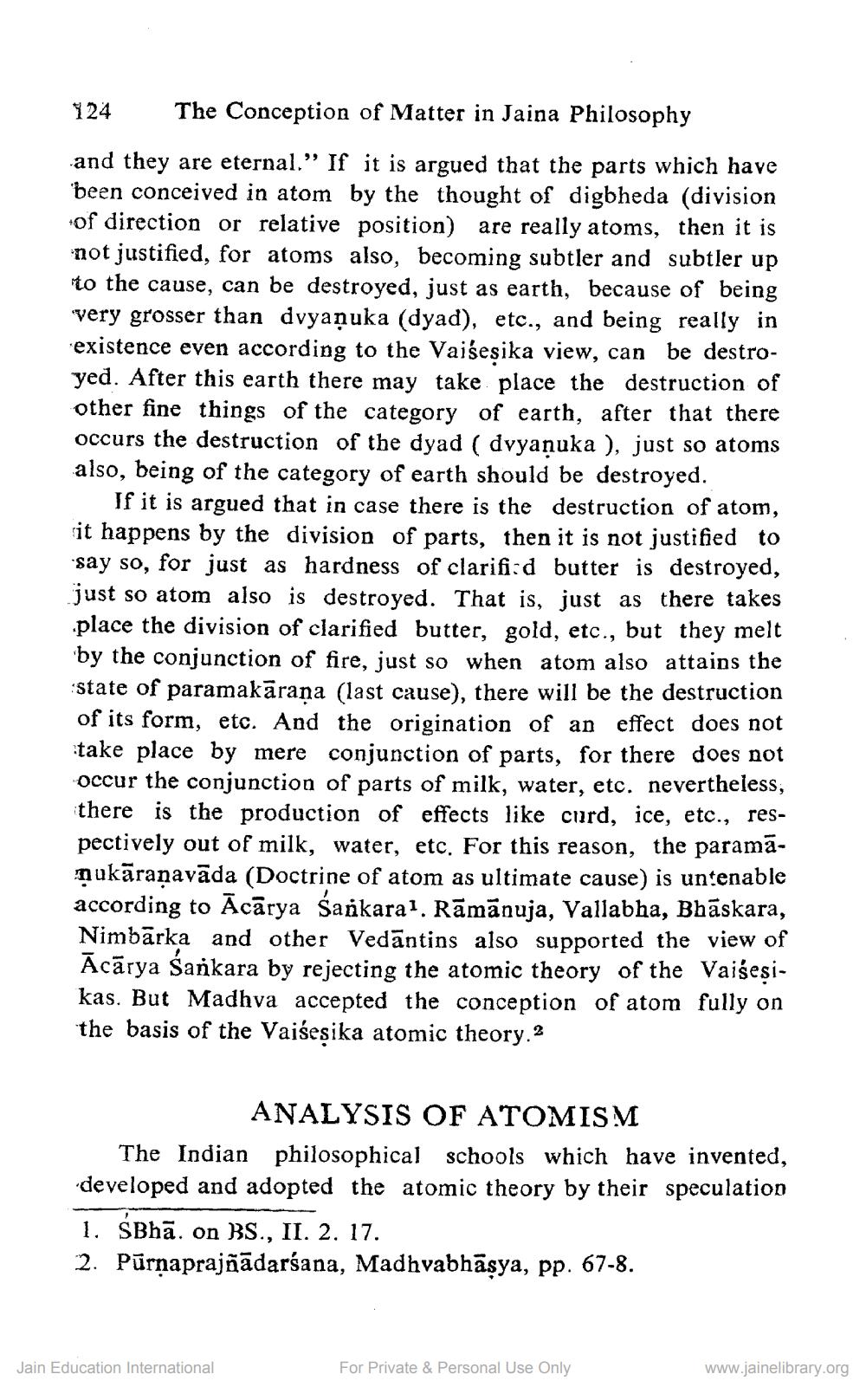________________
124
The Conception of Matter in Jaina Philosophy
and they are eternal.” If it is argued that the parts which have been conceived in atom by the thought of digbheda (division of direction or relative position) are really atoms, then it is not justified, for atoms also, becoming subtler and subtler up to the cause, can be destroyed, just as earth, because of being very grosser than dvyaņuka (dyad), etc., and being really in existence even according to the Vaiseșika view, can be destroyed. After this earth there may take place the destruction of other fine things of the category of earth, after that there occurs the destruction of the dyad ( dvyanuka ). just so atoms also, being of the category of earth should be destroyed.
If it is argued that in case there is the destruction of atom, it happens by the division of parts, then it is not justified to say so, for just as hardness of clarifi:d butter is destroyed, just so atom also is destroyed. That is, just as there takes .place the division of clarified butter, gold, etc., but they melt by the conjunction of fire, just so when atom also attains the state of paramakārana (last cause), there will be the destruction of its form, etc. And the origination of an effect does not take place by mere conjunction of parts, for there does not occur the conjunction of parts of milk, water, etc. nevertheless, there is the production of effects like curd, ice, etc., respectively out of milk, water, etc. For this reason, the paramānukāraņavāda (Doctrine of atom as ultimate cause) is untenable according to Ācārya Sankaral. Rāmānuja, Vallabha, Bhāskara, Nimbārka and other Vedāntins also supported the view of Ācārya Sankara by rejecting the atomic theory of the Vaiseșikas. But Madhva accepted the conception of atom fully on the basis of the Vaišeșika atomic theory. 2
ANALYSIS OF ATOMISM The Indian philosophical schools which have invented, developed and adopted the atomic theory by their speculation 1. SBhā. on BS., II. 2. 17. 2. Pūrņaprajñādarśana, Madhvabhāşya, pp. 67-8.
Jain Education International
For Private & Personal Use Only
www.jainelibrary.org




